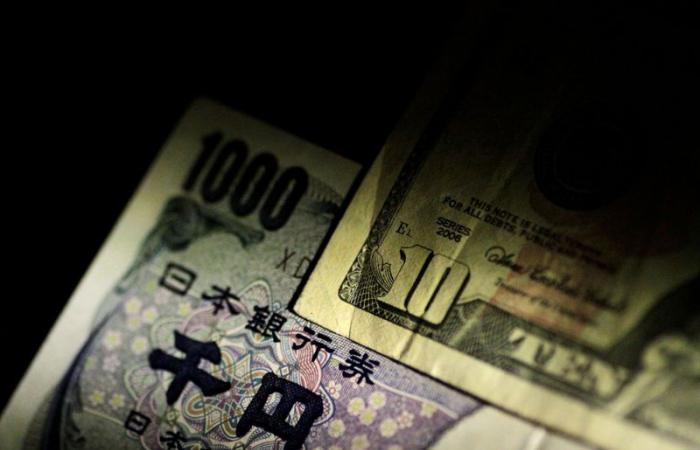The dollar remained stable on Monday awaiting new clues on the evolution of inflation in the United States, which will probably influence interest rates, while the statements of the Japanese authorities did not help to moderate the yen’s retreat towards the round figure of 160.
The yen weakened to 159.94 per dollar in early trading on Monday, its lowest level since April 29, when the yen hit a 34-year low of 160.245, prompting Japanese authorities to spend about 9 .8 trillion yen to support the currency.
The last quote was 159.70 per dollar, after Masato Kanda, Japan’s top foreign exchange diplomat, said on Monday that authorities will take appropriate action if there is excessive currency movement, and that the inclusion of Japan on the US Treasury’s currency supervision list will not restrict its actions.
The yen has come under renewed pressure following the Bank of Japan’s (BOJ) decision this month to delay tapering bond-buying stimulus until its July meeting.
A summary of views from the BOJ’s June policy meeting on Monday showed some policymakers called for interest rate hikes on time as they saw a risk of inflation exceeding expectations.
“It is quite notable that despite expectations of further policy tightening from the BOJ, the dollar/yen continues to rise and is back to 160,” said Carol Kong, currency strategist at Commonwealth Bank of Australia.
“I think unless the BOJ gives very hawkish clues on policy, which is unlikely, the dollar/yen is unlikely to turn around sustainably.”
The dollar index, which measures the U.S. unit against six peers, was last at 105.84, hovering around the nearly eight-week high of 105.91 it hit last week.
This week, the focus will be on the US personal consumption expenditures (PCE) price index – the Federal Reserve’s favorite indicator for measuring inflation – due to be released on Friday.
Economists polled by Reuters expect the index’s annual growth to slow to 2.6% in May and a weak reading is likely to bolster bets on an interest rate cut as early as September, which futures are currently trading as a 65% chance.
Evidence is mounting that the U.S. economy is slowing, Citi strategists said in a note to clients, saying weaker demand makes a series of softer core inflation readings more likely.
“The combination of slowing activity, labor market easing and slower inflation readings makes us increasingly confident that the Federal Reserve will begin reducing policy rates in September,” Citi said.
Attention during the week will also focus on geopolitics, with the first US presidential debate on Thursday and the first round of the French election on the weekend.
The euro, which has been under pressure since French President Emmanuel Macron called a snap election earlier this month, was little changed at $1.0693. The single currency has lost 1.4% this month.
The French far-right National Rally party (RN) and its allies were leading the first round of the country’s elections with 35.5% of the vote, according to a poll published on Sunday.
Christopher Wong, currency strategist at OCBC, said the impact on the euro may vary but is likely to tilt to the downside unless the result surprises with President Macron’s coalition gaining a larger share.
In other currencies, sterling was flat at $1.2643. The Australian dollar was trading at $0.6640 and the New Zealand dollar was little changed at $0.6113.


